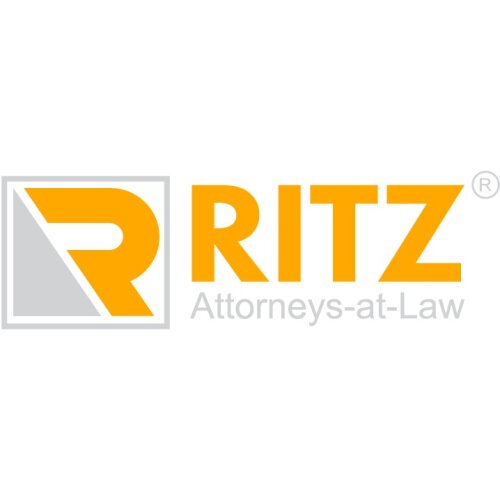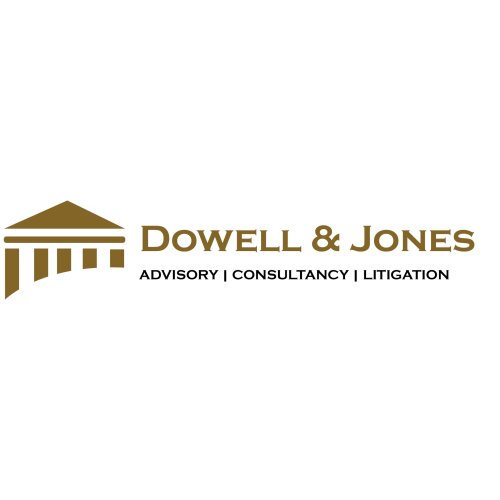Best Mining Law Lawyers in Malawi
Share your needs with us, get contacted by law firms.
Free. Takes 2 min.
Or refine your search by selecting a city:
List of the best lawyers in Malawi
About Mining Law in Malawi
Mining Law in Malawi refers to the body of legislation, regulations, and policies that govern the exploration, extraction, management, and utilization of mineral resources within the country. The main legislation is the Mines and Minerals Act, 2019, which replaced the earlier Mines and Minerals Act, 1981. This law outlines the rights, responsibilities, and obligations of individuals and companies involved in mining activities, and sets standards for environmental protection, community engagement, and the sharing of benefits from mining projects. Mining contributes significantly to Malawi’s economy, with key minerals including uranium, coal, limestone, and gemstones.
Why You May Need a Lawyer
Legal assistance is often necessary in the mining sector due to its complexity and the significant investment required. A lawyer can help in several situations, such as:
- Understanding and complying with complex mining regulations and permits
- Acquiring or renewing mining licenses and leases
- Negotiating agreements and contracts with investors, landowners, and suppliers
- Resolving disputes over land ownership, royalties, or environment-related issues
- Adhering to local content, community development, and environmental impact requirements
- Ensuring compliance with health and safety standards for workers
- Advice on foreign investment regulations and company structuring for mining operations
- Assisting in due diligence for mergers, acquisitions, or joint ventures
- Representing clients in court or before government regulatory bodies
- Protecting intellectual property such as geological data and proprietary mining processes
Local Laws Overview
Malawi’s mining industry is primarily governed by the Mines and Minerals Act, 2019, which introduced progressive reforms to promote responsible mining. Key aspects include:
- Licensing: The Act sets out several types of licenses such as reconnaissance licences, exploration licences, retention licences, mining licences, and small-scale mining permits. Each license has specific requirements for application, renewal, duration, and obligations.
- Environmental Protection: Mining projects must undergo Environmental Impact Assessments (EIAs) to safeguard land, water, and local communities. There are strict post-mining rehabilitation requirements.
- Community Rights: The law requires consultation and benefit-sharing with local communities, respect for customary land ownership, and prior informed consent for mining on community land.
- Local Content: Holders of mining rights are mandated to support local employment, procurement, and skills development to foster economic benefits for Malawians.
- Royalty Payments: Companies must pay royalties to the government based on the type and volume of minerals extracted, as well as corporate tax and other fees.
- Transparency: The Act provides for the establishment of a public mining cadastre and requires regular disclosure of mining revenues and contracts to promote transparency.
- Dispute Resolution: Mining disputes are first handled administratively with appeals possible to the courts.
Frequently Asked Questions
What types of mining licenses are available in Malawi?
Malawi issues reconnaissance licenses, exploration licenses, retention licenses, mining licenses, and small-scale mining permits. Each license covers different stages of the mining process, from basic surveying to full-scale extraction.
How do I apply for a mining license in Malawi?
Applications are made to the Commissioner of Mines and Minerals within the Ministry of Mining. The applicant must submit supporting documents, pay relevant fees, and meet technical and financial competency criteria. Environmental and community consultation requirements must be met before certain licenses are granted.
Are there restrictions on foreign ownership in the mining sector?
Foreign investors can own mining operations in Malawi, but they must comply with local regulations. There are obligations related to local content, benefit-sharing, and community engagement which are enforced equally on local and foreign entities.
What taxes and royalties apply to mineral extraction in Malawi?
Mining companies pay royalties based on the type and quantity of minerals extracted, as well as corporate income tax, withholding tax, and other statutory fees. The specific rates are established by law and may be updated from time to time.
What environmental regulations must be followed?
Mining projects must conduct Environmental Impact Assessments (EIAs) and obtain environmental permits. There are rules on waste management, water use, ecosystem protection, and mine rehabilitation after operations cease.
How are community rights protected during mining activities?
The law requires community consultations, compensation for land use or disruption, and benefit-sharing mechanisms such as community development agreements. Free, prior, and informed consent is needed for operations on community land.
Can a mining license be transferred or sold?
Transfers of mining licenses are allowed only with written consent from the Commissioner of Mines and Minerals. The transferee must meet all eligibility requirements, and transfer fees may apply.
What happens if a license holder violates mining laws or regulations?
Violations can result in penalties, suspension, or cancellation of licenses. There may also be criminal charges or civil liability, especially for environmental or safety breaches.
How can mining disputes be resolved in Malawi?
Most disputes are initially handled by the Ministry of Mining or local government offices. Parties can appeal decisions to the courts if administrative resolution is not satisfactory.
What is the role of the government in mining operations?
The government regulates the sector, issues licenses, monitors compliance, and enforces laws. It also receives royalties and taxes from mining operations and ensures that mining contributes to national development goals.
Additional Resources
If you require further information or assistance regarding Mining Law in Malawi, the following resources may be useful:
- Ministry of Mining - The central government authority responsible for mining regulation and licensing
- Malawi Environmental Protection Authority (MEPA) - Oversight of environmental compliance for mining projects
- Malawi Revenue Authority (MRA) - For information regarding mining taxation and royalties
- Chamber of Mines and Energy, Malawi - Industry organization offering support and advocacy for mining stakeholders
- Centre for Environmental Policy and Advocacy (CEPA) - Non-governmental organization for environmental and land rights advice
- Local legal firms specializing in mining, business, and environmental law
Next Steps
If you require legal advice or representation concerning Mining Law in Malawi, consider taking the following steps:
- Define your issue or question as clearly as possible, noting relevant documents or facts
- Consult the Ministry of Mining or local government offices for general queries or procedural information
- Contact a licensed legal practitioner in Malawi with experience in mining and natural resources law for specialist advice
- Gather all documents related to your mining activity, such as licenses, contracts, correspondence, and compliance reports
- If your situation involves community coordination, ensure you have conducted proper consultations and documented agreements
- Follow up on regulatory requirements for permits, reporting, and environmental compliance to avoid legal complications
- Should a dispute arise, know your rights for appeal and the procedural steps for administrative or court review
- Monitor updates to mining laws and policies that may affect your rights or obligations
Legal matters in mining are often complex, so seeking professional advice early can help safeguard your interests and ensure compliance with Malawi’s evolving regulatory environment.
Lawzana helps you find the best lawyers and law firms in Malawi through a curated and pre-screened list of qualified legal professionals. Our platform offers rankings and detailed profiles of attorneys and law firms, allowing you to compare based on practice areas, including Mining Law, experience, and client feedback.
Each profile includes a description of the firm's areas of practice, client reviews, team members and partners, year of establishment, spoken languages, office locations, contact information, social media presence, and any published articles or resources. Most firms on our platform speak English and are experienced in both local and international legal matters.
Get a quote from top-rated law firms in Malawi — quickly, securely, and without unnecessary hassle.
Disclaimer:
The information provided on this page is for general informational purposes only and does not constitute legal advice. While we strive to ensure the accuracy and relevance of the content, legal information may change over time, and interpretations of the law can vary. You should always consult with a qualified legal professional for advice specific to your situation.
We disclaim all liability for actions taken or not taken based on the content of this page. If you believe any information is incorrect or outdated, please contact us, and we will review and update it where appropriate.
Browse mining law law firms by city in Malawi
Refine your search by selecting a city.
















